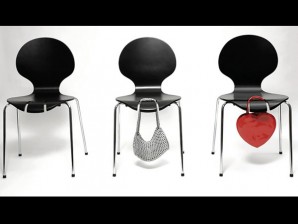Readers’ tips
THE MOST rewarding thing about writing a column is the fact that readers take the time and effort to respond. Even though messages include requests for help, many share suggestions and ideas.
Here are some of the best tips:
Real science
Dedet Panabi, editor of “Working Mom Magazine,” says, “I am sure your son Scott would like the site Zooniverse. It’s a citizen science project. Members help scientists sort through data.
“Zooniverse has links to projects like classifying galaxies (using images beamed in from the Hubble telescope) or tracking solar storms. Scientists are deluged with data and there are creative tasks computers can’t manage.
“My son Zach, now in the primary grades, and I picked the Galaxy Zoo project … all about shapes and sets, and he’s taking that in class now. But of course it’s a million times cooler when you’re looking at faraway galaxies, and making a real (albeit small) contribution to science.
“The site’s a bit hard, and needs some parental assistance and prodding, at least at the start … Zach wants to write the website and ask for a project with dinosaur bones.”
My reply: The site is addictive, entertaining and, most of all, real science. Scott’s favorite science topic is astronomy, so he is happy to help scientists analyze data in his own small way. Go to www.zooniverse.org.
Nifty inventions
Nesy Fernandez forwards links to sites that tout ingenious inventions. Designer Ko Yang has created a milk carton that changes color to reflect the freshness of its contents. The carton starts out white, then begins having orange or yellow spots as the expiry date nears. Go to www.ideas4all.com.
Chinese developer Daizi Zheng has modified a cell phone to run on Coca-Cola or any other sugary liquid. This eco-friendly phone runs on bio-batteries rather than conventional ones.
“A bio-battery is an ecologically friendly energy supply system, which uses enzymes as a catalyst to generate electricity from carbohydrates,” Zheng says. “All that is required is a small supply of a sugary drink. Once the battery dies only oxygen and water remains. Bio-batteries are fully biodegradable and [can last] three to four times longer than lithium batteries. Bio-batteries are a whole new way of looking at batteries and afternoon tea.”
Go to www.daizizheng.com.
Handbag holders, now common in restaurants, do not stop adroit thieves. A chair with grooves that allow women to put purses under the seat may be a better idea. Danish manufacturer Dan-Form has come out with these Stop-Thief chairs and in vibrant colors, too. Go to www.stopthiefchair.com.
Cool math
Nesy Fernandez recommends professor Hans Rosling’s presentations on the joys of statistics that are intelligible to anyone. Instead of chalk-and-board lecture, Rosling uses reality animation to make data come alive. In one case, Rosling discusses life expectancies and income levels of 200 countries over 200 years. The results are astounding and humbling. Go to
www.coolinfographics.com
/blog/2011/3/15/hans-rosling
-visualizing-mortality-history-video-infographic.html. If teachers, economists and statisticians can present statistics this way, every student will find the subject cool.
Rowena Matti sends a link to MoMath, the only mathematics museum in the United States, slated to open next year in Manhattan. America has many science museums but, with the closing of the small Goudreau (math) Museum in Long Island in 2008, there is now a need for a center to showcase math in the abstract.
Instead of dinosaur models and planetarium shows, MoMath will feature tricycles with square wheels and sponges with holes that turn into six-sided stars.
Professor turned hedge fund manager Glen Whitney is in charge of MoMath. So far, the museum has raised more than US$20 million, with US$2 million from Google alone. Its board is filled with math educators.
But Whitney envisions MoMath as a tool not primarily to raise US students’ math scores, but to encourage people to view math more positively. Visit www.momath.org.
Ruben Gomez, Portia Buquicchio, Ana Jane Eufemio, Dobbin Tan all point the way to Khan Academy. Salman Khan started by helping his niece master basic math, through a short video of doodles on white board with voice overs.
When he posted his videos on the Net, they went viral. Now Khan Academy is perhaps the most-visited math site in the world.
Do not expect whiz-bang graphics, games or animation. Khan teaches math the old-fashioned way, but he does it so clearly that students and teachers understand the concepts. Best of all, his site is non-profit, though Bill Gates and Google have given substantial contributions. Go to www.khanacade
my.org.
Life lessons
Vanessa Bianca Piedad forwards an e-mail by 90-year-old Regina Brett, on what life has taught her. Here are some insights:
Life isn’t fair, but it’s still good.
When in doubt, just take the next small step.
You don’t have to win every argument. Agree to disagree.
Make peace with your past so it won’t screw up your present.
Don’t compare your life with others. You have no idea what their journey is all about.
If a relationship has to be a secret, you shouldn’t be in it.
Over prepare, then go with the flow.
No one is in charge of your happiness but you.
Frame every so-called disaster with these words, “In five years, will this matter?”
All that really matters in the end is that you loved.
E-mail the author at [email protected].















